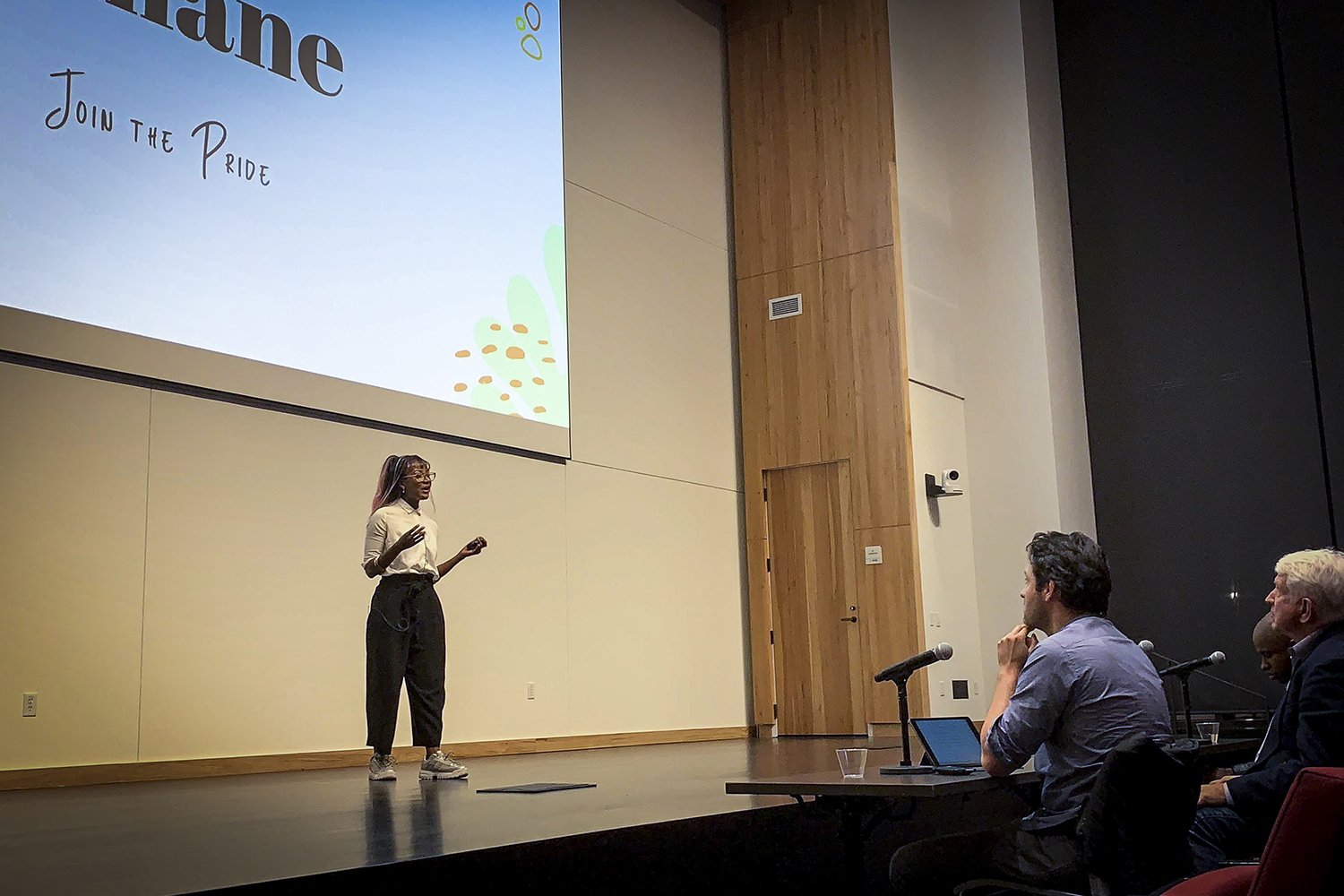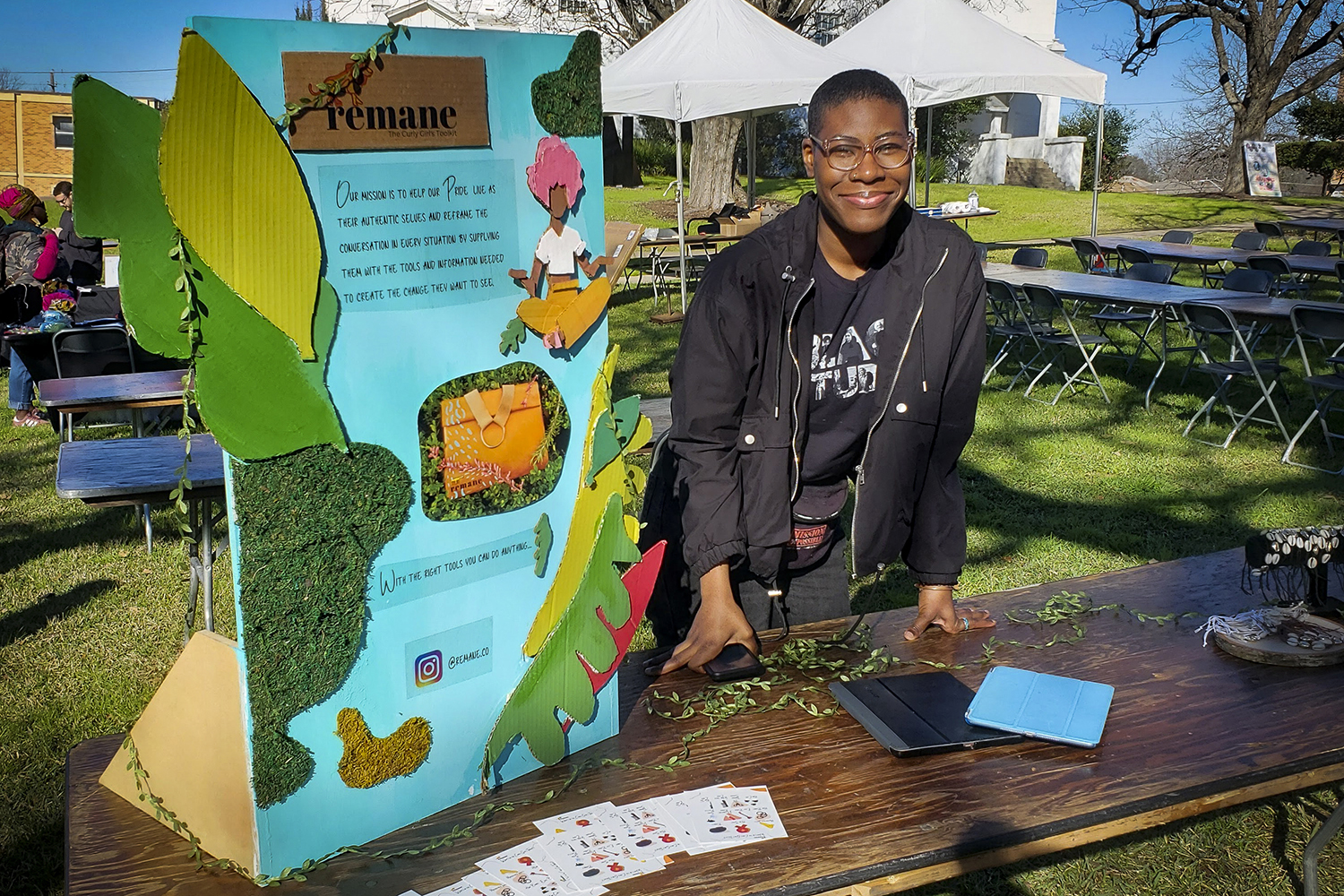Since COVID-19, two college students had to rethink their startup, Remane, and how to best help clients reclaim their natural hair.

Illustration by Ard Su
Listen to Ariel Lee's story
Ariel Lee and D’azhane Cook wanted to change the conversation around Black natural hair.
During a class at the University of Texas at Austin, the two connected on lifelong struggles with their hair — not knowing what products worked for them, the lack of knowledge and advice from their families, the stigmas of “natural hair.” Those struggles made them feel people of color often can’t express who they are or be their fullest self.
Frustrated, the two came up with an idea: data-driven hair care.
Their connection to hair and identity birthed their startup, called Remane. Their business categorizes products by their benefits and uses biological markers to determine what works best, such as, does this product work well for people with coarse hair or fine hair?
“We really wanted to create a product that would help men and women like us develop a better relationship with their hair” Lee said. “We thought we could do that through creating clear regimens that would help them stay more consistent with their hair.”

Ariel Lee works on the business plan for Remane at Capital Factory, a coworking space in downtown Austin, TX, on Feb. 1, 2020.
(Photo by Amerison Shresthra, courtesy of Ariel Lee)
In the Black community, hair is a way for people to showcase their identity and express themselves. However, natural hair has been politicized in the workplace, classroom and the military. Lee and Cook see their business as a way to combat that.
When they first launched, their original business model helped customers make a connection with their hair. Clients would fill out an assessment to pinpoint their hair porosity, what kind of hair they have and hair density in order to figure out products they needed. Then, Remane would create a regime and provide products right to their door. Their idea was a success.

Ariel Lee pitches Remane at the Longhorn Investment Competition at the University of Texas at Austin where the company’s pitch won the competition on Jan. 15, 2020.
(Photo by Ruben Cantu, courtesy of Ariel Lee)
Not only did they win their first pitch competition at UT-Austin, but their startup was inducted into Target’s Incubator Accelerator program. The pair, who graduated in 2020, also won a techstar’s Blackstone Launchpad fellowship. But these victories happened pre-COVID.
“I remember when we were in the beginning of the pandemic when literally everything changed,” Lee said.
With COVID-19, issues began popping up with their supply chain in China. The two had invested a lot of work collaborating with merchants, creating custom labels, but tariffs and political tensions put Remane’s basic service on hold.
“When the pandemic hit our packaged goods, our supply chain for it completely disappeared,” Lee said. “It was either we needed to pivot—or we no longer exist as a company.”
Remane as a company had a lot to consider. With little funding as a startup in a pandemic and now their main service put into question, the two went to the drawing board. They began talking to previous customers and listening to the people they served.

D’azhane Cook sets up an informational table for Remane at Huston-Tillotson University in Austin, TX, on Jan. 20, 2020. Ariel Lee and her business partner Cook attended a small business exposition at the university to begin outreach and secure funding for their LLC status. (Photo by Ariel Lee)
Lee said they found during a pandemic, their client’s needs changed. People were staying indoors more. Because of this, there was a rise in hair experiments from “COVID cuts” to at-home dye jobs. She said people needed Remane’s guidance more than ever to feel comfortable and confident in their own home. So, like many other workplaces and platforms, they went virtual.
“We would create a product that was more valuable with intellectual equity,” Lee said.
“I’ve learned a lot of resilience and how to take care of myself. I think that one of the biggest things that my co-founder and I focus on is making sure that we as individuals and as humans are doing well and thriving, as well as everyone on our team.”
Being a Black entrepreneur in a pandemic has helped her grow.
“I’ve learned a lot of resilience and how to take care of myself. I think that one of the biggest things that my co-founder and I focus on is making sure that we as individuals and as humans are doing well and thriving, as well as everyone on our team.”
Remane is now a consultation service and, as another Black-owned business, Lee says, is important to a more equitable society.

Ariel Lee and D’azhane Cook visit the KTBC FOX 7 Austin television studio where the two spoke about their company Remane on May 16, 2020.
(Photo by Ariel Lee)
“Businesses founded by diverse founders are essential to our country and just the world improving because you need the people who own the institutions and businesses to look like the people that those businesses and institutions serve,” she said.
Lee said at times she and Cook have butted heads with older generations, because some adults avoided wearing their hair in its natural state in order to not stand out and keep their jobs.
Laws like the Crown Act, a California law that prevents workplace discrimination against Afro-textured and styled hair, have helped the natural hair movement in breaking workplace stigmas and sparking enough attention to grow to a national bill.
“It’s important to be able to see that a CEO can be bold, that a CEO can have curly hair, that a CEO can have box braids and still be a CEO and professional.”
